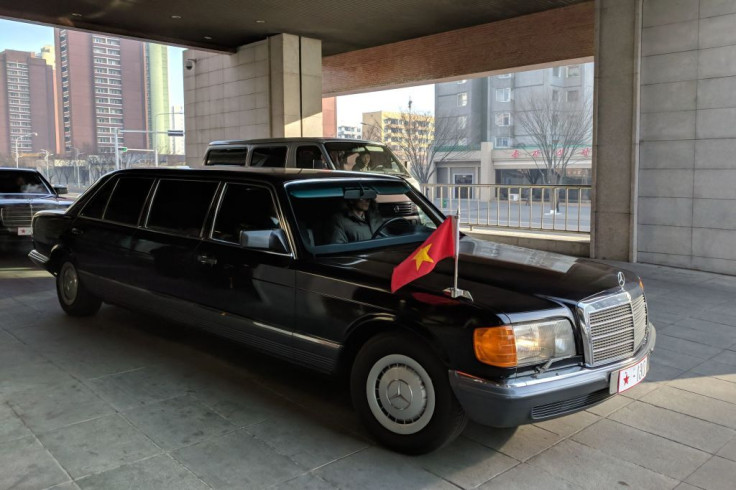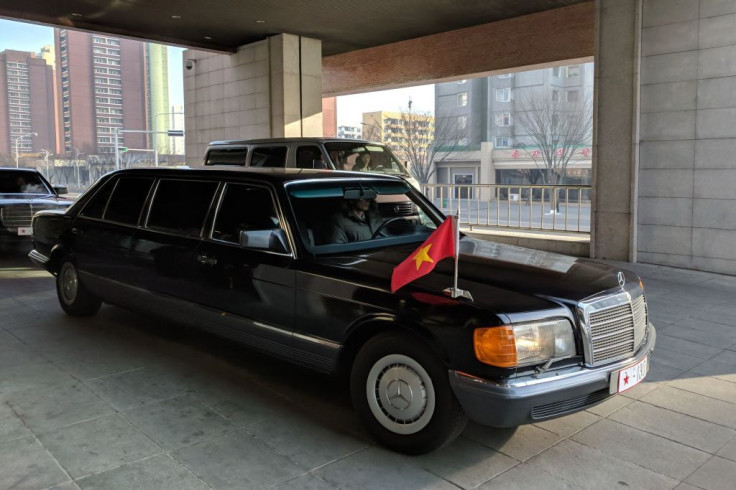Kim Jong Un To Open Up North Korea Economy To The World

North Korean dictator Kim Jong Un seems intent on copying the liberal Vietnam economic growth model -- and not the more authoritarian China model -- in a determined bid to open his country’s crippled socialist economy to the world.
Ravaged by international sanctions and wracked by famine, North Korea’s economy shrank 3.5 percent in 2017 after growing 3.9 percent in 2016.
The possibility of North Korea emulating Vietnam emerged after a series of high-level visits between top officials of both communist countries. Vietnam's Foreign Minister Pham Binh Minh was in Pyongyang Tuesday to reciprocate the visit to Hanoi last year of North Korean Foreign Minister Ri Yong Ho.
Ho’s trip sought to study Vietnam's economic reforms that led to its spectacular economic growth since the 1980s, according to North Korea’s state-run Yonhap News Agency. Only last month, Vietnam's parliamentary chairwoman, Nguyen Thi Kim Ngan, said Vietnam is "willing to share an economic solution and know-how with North Korea.”
North Korea’s attempts to emulate Vietnam have also found favor in the United States. U.S. Secretary of State Mike Pompeo said in July 2017 that North Korea can enjoy an economic miracle akin to Vietnam's -- but only if North Korea denuclearizes, which will lead the U.S. to lift its economic sanctions on the country.
President Donald Trump has also held out the carrot of economic growth to entice North Korea and its leader, with whom Trump claims he has a great relationship with, to denuclearize.
"North Korea has been willing to experiment with reforms under Kim Jong Un,” said Bradley Babson of the Korea Economic Institute of America. Other western experts believe Kim might be more inclined toward Vietnamese-style liberalization instead of China’s strict command economy dominated at all levels by the Communist Party of China.
Vietnam’s current economic growth is far more impressive than China, which is slowing down due to Trump’s trade war hammering its external trade and massive economic challenges, including shadow banking and corruption.
Vietnam recorded a 10-year high GDP growth rate of 7.1 percent in 2018. It’s economy is projected to grow by 6.9 percent this year, according to British multinational bank Standard Chartered plc. The bank said Vietnam is now shifting its economic growth focus to sustainable growth. Other key drivers of of growth will be manufacturing and stronger domestic consumption.

Key to Vietnam's successful economic strategy since the early 1990s was the introduction of its doi moi (‘renovation’) economic reform program in 1986. At the heart of Vietnam’s economic strategy is a rapid integration into the world economy.
Bolstering this is a diversified portfolio of exports and the attraction of foreign direct investments. This open approach was combined with successful domestic agricultural growth and a role for state-owned enterprises while encouraging growth of the private sector.
Vietnam has also opened its domestic market only slowly while encouraging export growth.
© Copyright IBTimes 2024. All rights reserved.





















